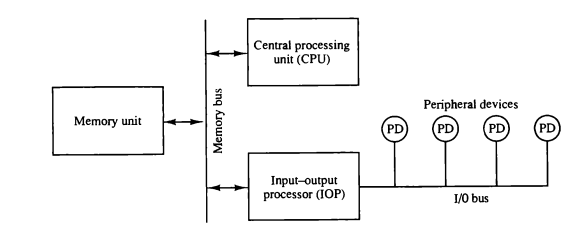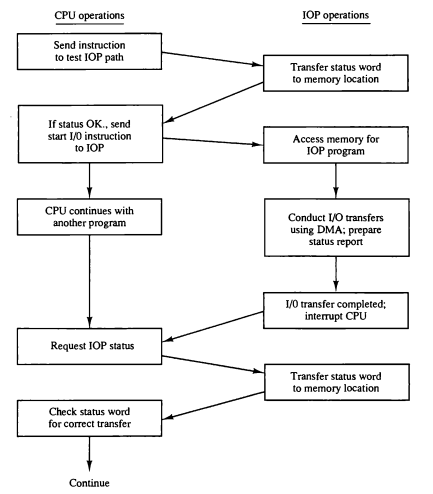I/O Channels:
- Definition:
- An I/O channel, also known as an I/O channel controller or I/O channel processor, is a specialized processor or controller dedicated to managing data transfers between the CPU and peripheral devices.
- Functionality:
- I/O channels handle the details of data transfer, including managing communication protocols, buffering, error detection and correction, and synchronization. They offload the CPU from direct involvement in the intricacies of I/O operations.
I/O Channel Types:
- I/O Channel for I/O Devices: Manages data transfer between the CPU and I/O devices, such as disks, printers, and network interfaces.
- Memory-Mapped I/O Channel: Handles communication between the CPU and memory-mapped I/O devices, where I/O devices are mapped to specific memory addresses.
I/O Processors:
- Definition:
- An I/O processor is a dedicated processor responsible for managing I/O operations. It can handle the processing of I/O requests independently of the CPU.
- Functionality:
- I/O processors are designed to execute I/O instructions and manage the data transfer between the CPU, memory, and peripheral devices. They may include specialized instructions for handling I/O operations efficiently.

Interaction Between CPU, I/O Channels, and I/O Processors:
- The CPU issues I/O commands and communicates with I/O channels or processors to initiate data transfers.
- I/O channels or processors manage the data transfer, including addressing, buffering, and error handling.
- Parallelism allows the CPU to continue executing instructions while I/O operations are underway.

0 Comments